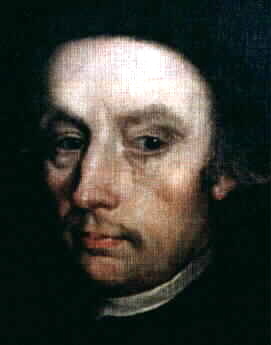Edmund Arrowsmith facts for kids
Quick facts for kids SaintEdmund Arrowsmith SJ |
|
|---|---|
 |
|
| Martyr | |
| Born | c. 1585 Haydock, England |
| Died | 28 August 1628 (aged 42 - 43) Lancaster, England |
| Venerated in | Roman Catholic Church |
| Beatified | 15 December 1929 by Pope Pius XI |
| Canonized | 25 October 1970 by Pope Paul VI |
| Major shrine | Catholic Church of St Oswald and St Edmund Arrowsmith, Ashton-in-Makerfield, England |
| Feast | 28 August (individual) 7 August (one of the Lancaster Martyrs) 25 October (together with Forty Martyrs of England and Wales)< 29 October (one of the Douai Martyrs) |
| Attributes | crucifix, martyr's palm, noose on neck, glowing right hand |
| Patronage | Lancaster |
Edmund Arrowsmith (born around 1585 – died August 28, 1628) was an important figure in the Catholic Church. He is known as one of the Forty Martyrs of England and Wales. These were people who died for their Catholic faith during a difficult time in English history. We know a lot about Edmund Arrowsmith from a special report written by someone who saw what happened to him. This report also tells the story of another person, Richard Herst, who faced similar challenges.
Contents
Early Life and Family
Edmund Arrowsmith was born in 1585 in Haydock, Lancashire, England. His birth name was Brian, but he later used Edmund, which was his confirmation name. His family, the Arrowsmiths, were farmers. His mother, Margery Gerard, came from another well-known family in Lancashire.
Edmund's family faced many challenges because they were Roman Catholics in England. At that time, practicing Catholicism was often against the law. His family was frequently bothered by officials. Once, when he was a child, his parents were taken to jail, and he and his siblings had to be cared for by neighbors.
Becoming a Priest
In 1605, when Edmund was about 20 years old, he left England. He went to the English College, Douai, which was a special school in France for English students who wanted to become priests. He had to return home for a short time due to illness, but he went back to Douai in 1607 to continue his studies.
Edmund became a priest in 1612. A year later, he returned to England. His job was to serve the Catholic community in Lancashire. He worked quietly for several years without any major problems.
Arrest and Execution
Around 1622, Edmund Arrowsmith was arrested and questioned by the Anglican Bishop of Chester. However, he was released soon after. This happened because King James I of England ordered that all arrested priests should be set free. The King hoped this would help with plans for his son, Prince Charles, to marry a Spanish princess.
In 1624, Edmund Arrowsmith joined the Jesuits, a religious order within the Catholic Church.
In the summer of 1628, Edmund was betrayed by a man named Holden. He was arrested while ministering to Catholics in Lancashire. He was found guilty of being a Catholic priest in England, which was against the law at the time. He was sentenced to death and executed in Lancaster on August 28, 1628. Before his death, another priest, John Southworth, who was also in prison, heard his final confession.
Legacy and Veneration
Edmund Arrowsmith was recognized as a saint by the Catholic Church. He was declared "blessed" (beatified) in 1929. Later, in 1970, he was made a saint (canonized) by Pope Paul VI. He is honored as one of the Forty Martyrs of England and Wales.
His feast day, a special day of remembrance, is celebrated on August 28. He is also remembered on October 25 with the other Forty Martyrs. The Lancaster Cathedral also celebrates him as one of the Lancaster Martyrs on August 7 each year.
A special relic, his hand, was preserved by his family. It is now kept at the Catholic Church of St Oswald and St Edmund Arrowsmith in Ashton-in-Makerfield. Stonyhurst College has a small trunk that Edmund used to carry his vestments and equipment when he traveled between houses.
There are also schools named after him, like St Edmund Arrowsmith Catholic High School and St Edmund Arrowsmith Catholic Academy.
Images for kids
 | Aaron Henry |
 | T. R. M. Howard |
 | Jesse Jackson |


